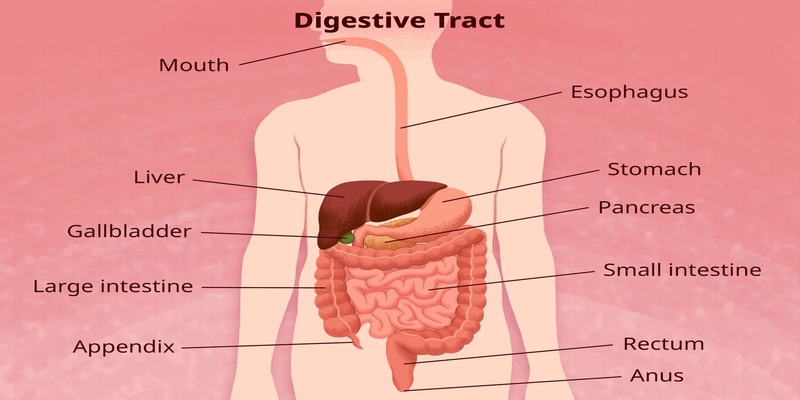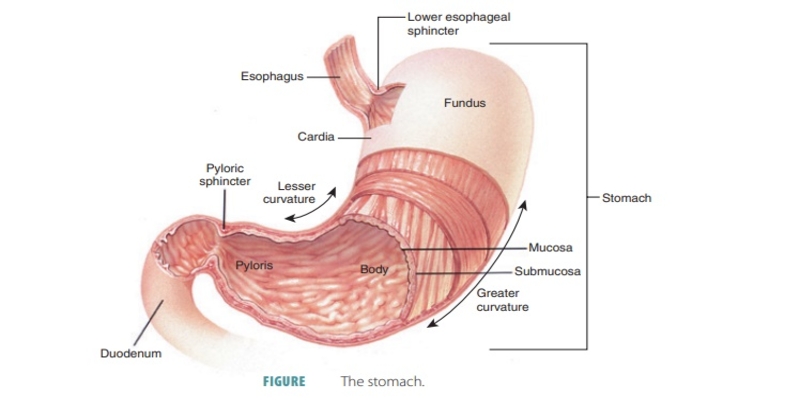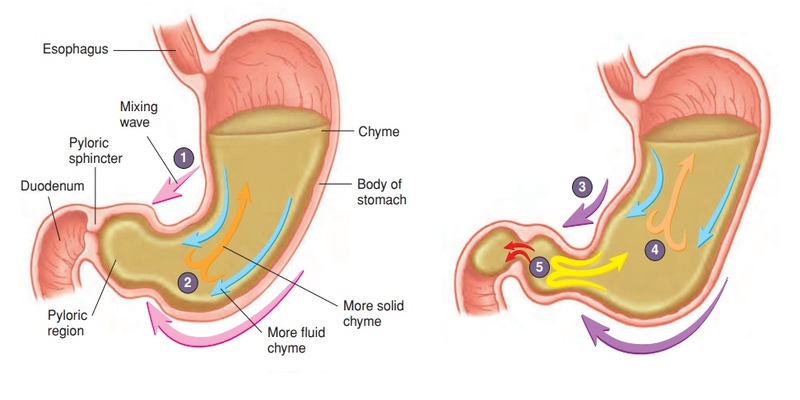Complete Details About The Inner Workings of Digestion
Nov 26, 2023 By Nancy Miller
Our bodies require food as fuel for progress, healing, and energy. The food we eat breaks down via the digestive system and gives essential nutrients to the body, including glucose, proteins, and fatty acids.
After this, The small intestine absorbs the processed food into its bloodstream, In this part, all the nutrients are sent to every body cell,
The mouth is where the digestive trail starts and ends, at the anus. It resembles a lengthy, muscular tube reaching ten meters, connecting the digestive organs.
The large intestine and, to some extent, the remainder of the digestive system are refuge to a massive range of reservoirs of microorganisms, which includes bacteria.
These microorganisms are significant for a healthy digestive system. Each of them has particular organisms that are important to them.
In addition, the diseases and drugs you have taken significantly impact the bacteria that occupy your digestive system. To explore more, keep reading!
How Does Food Get Through the Digestive System?

The movement of food via the gastrointestinal tract is known as peristalsis. Your GI tract's significant, hollow organs consist of transportable walls made by a muscle layer. The action forces food and liquids into your GI tract, blending the substances inside each organ.
While the muscle in front of the meal relaxes to allow the food to travel, the strength behind it contracts, which forces it to move forward.
The Esophagus and Mouth
The digestive system process initiates from the mouth. Our teeth play a crucial role in the digestion of food. They grind and moist the food with saliva, which makes it easy to swallow.
Moreover, Our saliva contains a unique substance that is called an enzyme. It begins to turn carbohydrates into sugars, and the food ball is massaged into our stomach by oesophageal muscle contractions after it has been swallowed.
Peristalsis
When you are eating food, it will be swallowed automatically without any effort. Peristalsis starts when your brain stimulates the esophageal muscles.
Lower Sphincter of the Esophagus.
The lower esophageal sphincter is a T-shaped ring whose duty is to relax the muscles to keep the flow of food smooth.
Usually, this area remains closed, preventing the food particles from returning to our esophagus from the stomach.
The Stomach
The stomach plays a very important role in the digestion of our food. The process of digestion takes place in this part. When we eat food, it enters the stomach by passing through a sphincter.
It is a little muscle ring. Here, gastric juices are combined with a muscular bag. The stomach breaks down the food with the help of a chemical.
The Small Intestine
The duodenum is the first part of the small intestine, where the food is, which is later forced to go through a second sphincter.
But the process dont end here after this; the food is combined with additional pancreatic digestion enzymes and liver bile in the duodenum. Then, food is moved into the jejunum and ileum, the lowest sections of the small intestine.
The ileum, coated with millions of projections resembling fingers and termed villi, All the nutrients are absorbed here. Every villus is joined to a capillary network. In this way, Nutrients enter the bloodstream.
Pancreas
Let's talk about the Pancreas. It is one of the most significant glands in our body. It secretes digestive juices as well as the hormone insulin.
In this way, the blood sugar levels are regulated in part by insulin. Insulin production issues are the leading cause of diabetes.
Liver
Our body cannot function without the liver. It is a vital part of the body. Most of the functions are performed by our liver, such as:
- Digestion of fats
- Preserving gall bladder
- Processing proteins and glucose
- Filtering our body from poisons and other toxic substances that can harm it.
- The large intestine
The rectum is where the waste (feces) is kept after water removal. The anus is then the route by which it can exit the body.
Most Common Digestive System Issues

Generally, we can have many problems with digestion, which is completely normal and can be cured with proper treatment the most common problems are:
- Inflammation
- Infection
- Diverticulitis
- Heartburn
- Vomiting
- Diarrhea
Why is Digestion Important?
It is vital for our body because it needs nutrients from food and water to help the digestive system function correctly and remain healthy, so digestion is significant.
Nutrients include water, proteins, lipids, carbs, minerals, and vitamins NIH external link. Our digestive system breaks down nutrients into small pieces that your body can absorb and use for growth, repair, and energy.
- Amino acids are formed from proteins.
- Fats decompose into glycerol and fatty acids.
- Simple sugars are formed from carbohydrates.
How Does the Body Regulate its Digestion?

The interaction between your neurons and hormones partially regulates your digestive system.
Hormones
Hormones that usually regulate the function of our digestive system are produced and emits by the cells that line our stomach and small intestine.
These hormones communicate with our brain when we feel hungry or complete and when our body produces digestive juices. In addition, the Pancreas has hormones that are essential for digestion.
Nerves
Nerves also play a very important role in controlling the digestive system here is a small example: whenever we smell something delicious, our salivary glands send a signal to our brain, which makes our mouth water. It is because our nerves are linked with the brain and spinal cord
Also, some nerves line the walls of our gastrointestinal tract and are the central part of our enteric nervous system (ENS).
ENS Nerve
When we eat something, it results in expanding the GI tract's walls. Our ENS nerves release several chemicals that can either speed up or slow down the transit of food through our digestive tract and in the creation of digestive juices.
So, To move food through our intestines, The gut muscles must shrink and relax in response to signals from our nerves.
What Happens to the Digested Food?
When we eat something, the nutrients present in it are absorbed in the small intestine just before going to the other parts of the body.
Then, there are particular cells that clear the passage of nutrients to pass through the intestinal barrier and into circulation.
The lymph system then absorbs Fatty acids and vitamins (NIH external link). It is a network of capillaries that transports white blood cells and a fluid, usually called lymph, throughout our body to fight infection.
After this process, our body collects the materials required for development, repair, and energy from sugars, amino acids, fatty acids, and glycerol.
Conclusion
This is all you need to know about digestive system organs. So, in order to get a healthy digestive system, It's important to keep drinking water.
It results in the passage of waste through your digestive system and helps us to discharge the waste more efficiently.
Moreover, Fibre acts like a sponge, absorbing water. The fiber cannot do its job without fluid, and we get constipation. In short, we should eat healthy to stay healthy.







